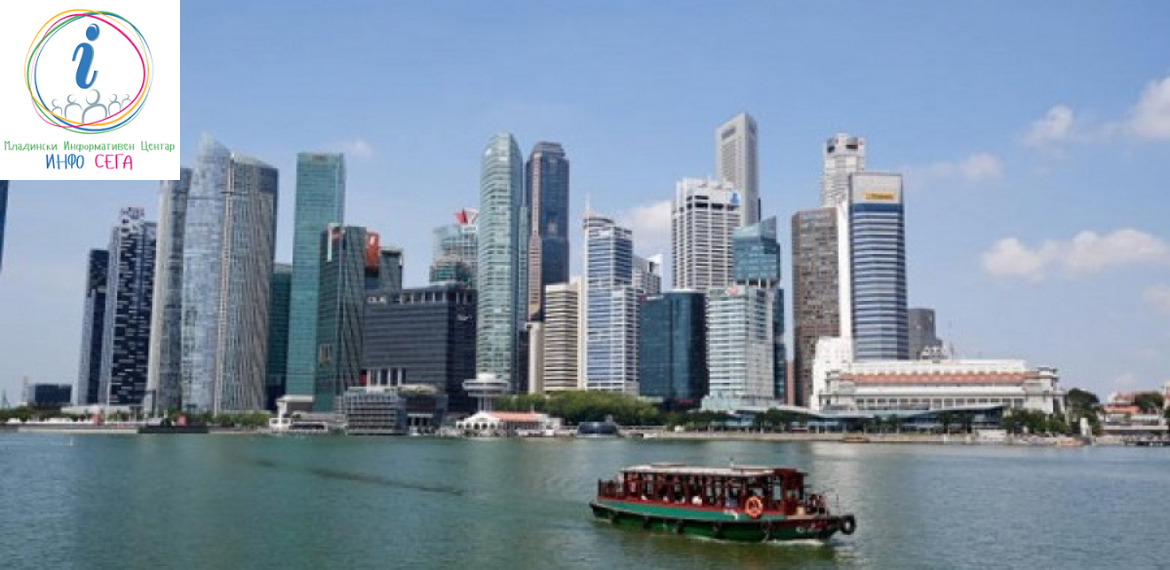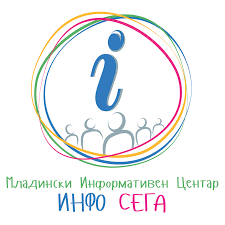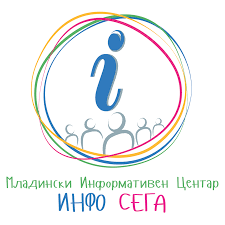
Singapore – the safest nation in the world
According to the Organization for Economic Cooperation and Development (OECD), report for 2017, Singapore, or the garden state, is the safest country in the entire world. A country outside of Europe? Yes!
Singapore ranked in front of the usual suspects like Japan, Iceland, Denmark and Sweden and Luxemburg, where the shear crime rates are really, really low, despite the differences in demographics, geographies or average poverty rates. The statistics presented are regarding the overall crime rates in actual numbers and are not averaged based on the population of these countries or the so called “per capita”. While Singapore may no longer boast of having the most powerful passport in the world, losing only to Japan, it is at least the safest country globally.
In Singapore, the only crimes that have seen statistical increase in the recent years are the cyber-crimes, which of course is unpleasant, but at least no violence is involved and it is very unlikely that our reading young traveler ending up being attacked, robbed or worse - lying dead on the streets (grim sounding statistics, but cold reality in the world’s crime rates). In 2015 and 2016 the country have seen a 10 to 20 years low in violent crimes, depending on exactly which type of crime is regarded. (Yikes!)
To compare, we will cite a recently released World Justice Report (WJR), Singapore is seen as the most peaceful country in the world, while India, Bangladesh, the Philippines and Pakistan rank the lowest. At the 113th place in this ranking Pakistan places last, as the most unsafe country in the world, where the citizens feel the least safe. We will suppose that this ranking does not include countries, where there are active war zones, and all the world governments, and institutions that have to deal with people travelling abroad, would strongly advice their regular citizens against visiting them. To add up the US and Russia, are not even close to the top in the safety statistics.
So how did the government of Singapore managed to achieve such a low crime rate? Well they impose very strict and harsh sanctions, even on some pretty casual things, and even more, infringe some human rights in order to do so. Let’s see what are the big and small “do not” things in Singapore. First let’s begin with the; some more bizarre than others, banned activities, with the credit towards culturetrip.com.
Chewing gum
One of the most well-known items banned in this list, Singapore has taken a strong stance against chewing gum since its ban in 2004. Unless it is used for medical purposes (like nicotine gum, for example), chewing gum is generally banned in Singapore. Furthermore, if you are caught selling chewing gum, you could face a penalty as high as SGD100’000 (or around 64’000 EURO).
Recreational fireworks/firecrackers
Lighting firecrackers may be an auspicious activity for some cultures, but the loud, crackling act has been banned in Singapore since 1970, when a firecracker caused a fire that killed and injured locals. Today, Singaporeans are only able to set off firecrackers during festive seasons. If you are hoping not to miss a pyrotechnic display, be sure to travel to Singapore closer to its National Day celebrations (August 9) and witness its majestic firework display as part of the celebrations.
E-Cigarettes
Despite various reports of e-cigarettes being less harmful than actual cigarettes, Singapore’s Health Sciences Authority (HSA) has maintained its stance on the cigarette substitute, arguing that it could be a gateway for non-smokers to get addicted to tobacco. It has been banned in Singapore since 2011, with a penalty fine of $5,000 imposed if you are caught importing or distributing it.
Shisha
Yet another ban revolving around tobacco, Shisha (a method of smoking where flavour-infused tobacco is vaporised through a bong, or hookah) was officially banned in 2016 in Singapore. With popular eateries and lounges then forced to halt any import or sale of shisha within their premises, many reminisce about the relaxing, casual atmosphere shisha brought to popular areas like Arab Street.
Public nudity (even within private premises)
This might seem slightly strange, but it is illegal for anyone to walk around both public spaces and private residential premises in the nude. If you happen to forget your towel after a nice, cold shower – make sure that your windows are closed before you spring your way to the bedroom! If you are reported by the public or caught, you can get fined or jailed for up to 3 months.
Owning or trading exotic animals
In Singapore, it is illegal for anyone to own, breed or sell exotic breeds of amphibians, lizards or reptiles without a license. The law is enforced in a bid to protect the ecosystem and Singapore’s biodiversity. While there have been plenty of reported cases of such acts in Singapore, the trade of exotic species is still rampant and lucrative, with prices of such animals going for as high as $10,000 for a clouded tiger.
Taking durian onto public transportation
Love it or hate it, the durian splits opinion with many disagreeing when it comes to the spiky fruit. Some people find the stench so unbearable that it prompted the government to ban the king of fruits on all public buses and trains. How bad is the stench? While some laud it for its pleasantly sweet and creamy scent, others have described it to have a pungent, almost sulphur-like stench. Yes, the world is really divided on this one.
Gathering in groups of more than 3 people
In Singapore, it is illegal for groups of more than 3 people to assemble after 10pm in a public space. It might seem strange, but the government see this as a way to ensure that unlawful assemblies do not take place, which could disrupt the peace and stability of the nation. So the next time you are out with your friends in Singapore, make it a double date to avoid any trouble.
What is important to mention here that with this prohibition is an infringement of a commonly recognized human right.
Freedom of assembly, sometimes used interchangeably with the freedom of association, is the individual right or ability of people to come together and collectively express, promote, pursue, and defend their collective or shared ideas. The right to freedom of association is recognized as a human right, a political right and a civil liberty. The first amendment of the Constitution of the United States of America is actually the Right to Peaceful Assembly, also sometimes called the “A1”, to conveniently shorten the citation of it as much as possible, it makes the freedom of peaceful assembly, the freedom of speech, the freedom of exercising religion, the freedom of press and to petition for a governmental redress of grievances, a legal human right.
Anyways…
Purchasing alcohol after 10:30pm
This one’s a doozy – as of 2015, Singapore has banned the sale and consumption of alcohol in public spaces from 10:30pm to 7am. Unless a restaurant has applied for the relevant permits, it could be sentenced to a fine of up to SGD10,000 if caught selling alcohol during this time-frame. The ban came into effect after a riot took place at Race Course Road due to a public disorder caused by excessive drinking. However, this is a great excuse to invite your friends over and take the party inside instead!
Cats are not allowed in residential flats
Residents in Singapore living in residential flats (homes sold by the Housing Development Board) are not allowed to keep cats as pets. The housing development claims that cats are “difficult to contain within the flat” and tend to shed fur and urinate in public spaces should they roam free. Dogs however, are allowed but would require pet owners to have a license. This rule doesn’t apply to residents living in condominiums or private properties, though.
You can get arrested for things like…
Inciting religious or racial hate
Religious and racial harmony is taken very seriously in Singapore, and anything seen as racist or racially insensitive in a public forum can land you with a hefty fine and/or thrown in jail for up to three years. There have been many cases of both individuals and media personalities in Singapore being fined or arrested, especially with the viral nature of social media. Other offences in this category include defiling a place of worship or burial ground, drunken and disorderly behavior near a place of religious worship, or disrupting a religious assembly.
Busking without a licence
Travelling artists and performers often like to busk along the streets to make a quick buck, but know that busking is illegal in Singapore without a licence granted by the National Arts Council, and could result in a fine of up to $20,000 if you are caught. Busking is highly regulated in Singapore – the license has to be renewed on an annual basis and busking can only be done in specifically designated locations.
Imagining the death of the President
Countries like Thailand are renowned for the high regard in which they hold their King. But in Singapore, it’s an actual offence to even begin thinking about harming the Singaporean President in any way – an act punishable at its harshest by death. It’s a little less harsh if you were thinking about other members of the government where you face life imprisonment at most.
Leaving your mark on public property without permission
With cleanliness being such a big issue in Singapore, vandalism is severely frowned upon. There have been several high-profile cases of vandalism that made news beyond Singapore’s shores because of the severe punishments they received – a fine of up to S$2,000 per act, a jail term of up to three years, and even caning from three to eight strokes. Despite the stifling conditions for budding street artists and graffiti lovers, a small street art scene in Singapore exists, mostly driven by the popularity of large-scale public murals.
Littering
To maintain its image as a clean and green city, Singapore imposed heavy fines from $2,000-$10,000 for anyone caught littering. One of the more creative and unusual punishments is that offenders may receive a Corrective Work Order on top of the fine, where they are sent to clean the public streets in a bright identifying vest.
Feeding pigeons
Throwing some spare bread to the flock of pigeons in the main square seems like such a clichéd thing to do in a city, but here in the city-state of Singapore, the feeding of pigeons has been banned since 1973 because of the fears of spreading diseases, and those caught flouting the rules are fined up to $500. Strangely enough, pigeon-feeding is on the rise and an increasing number of people have been fined in recent years.
Yes, we admire the low crime rates, but for some of these we could argue, that are just legalized governmental schemes to extort the people and creating substantial revenue. Feeding the pigeons?!? Come on now…
So if you would like to live in a super- safe environment, with the very little chance of you becoming a victim of some sort of crime, you might like bringing all your suitcases and personal belongings to the garden state. We are already sure; life would be super crime free there.
For me personally, I don’t know. Maybe, just maybe, I would risk it a little bit in exchange of the freedom to feed the pigeons and chew a non-health related bubblegum. And this will be it.
So long from me and a little feathery pirate-parrot, who said himself that he is called Joe, from Singapore.
Written and summarized by: Velin Nedkov

